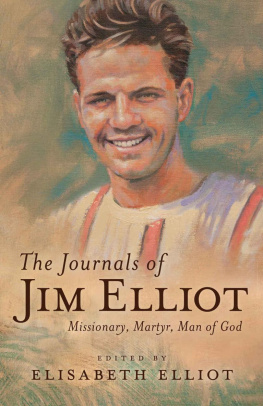Phocion Publishing 2019, all rights reserved. No part of this publication may be reproduced, stored in a retrieval system or transmitted by any means, electrical, mechanical or otherwise without the written permission of the copyright holder.
Publishers Note
Although in most cases we have retained the Authors original spelling and grammar to authentically reproduce the work of the Author and the original intent of such material, some additional notes and clarifications have been added for the modern readers benefit.
We have also made every effort to include all maps and illustrations of the original edition the limitations of formatting do not allow of including larger maps, we will upload as many of these maps as possible.
FRACAS IN THE FOOTHILLS
A Homer Evans Western Murder Mystery and Open Space Adventure
ELLIOT PAUL
Fracas in the Foothills was first published in 1940 by Random House, New York.
Dedication
THIS BOOK
is affectionately dedicated to Montgomery Ward & Co. and Sears, Roebuck & Co. in grateful recognition of the help and comfort afforded me by those public-spirited concerns at times when I was alone on the open prairie.
*****
A Glossary of terms used currently in the American language but not yet to be found in the more academic dictionaries appears at the end of this book.
Authors Note
Dear Reader:
In Montenegro, years ago, a peasant with a large family complained to the village priest that his hut was too small, and each year, when another child was born, his life became more unbearable.
The wise priest ordered the peasant to move his horse into the hut with the family, and as soon as the man got used to that, the priest made him move in the cow. The peasant and his wife were continually in tears, and the children had to exercise all their wits to avoid being trampled upon. After a year of living with the horse and cow, the peasant was told by the priest to move the animals out again, and from that time on rejoiced because of the roomy house he had.
Now some of the overworked reviewers set up a howl because there was too much fun and frolic in Hugger-Mugger in the Louvre . Had the book been shorter, they could have knocked off work at an earlier hour. Consequently, I have made Fracas in the Foothills twice as long as my other Homer Evans stories and have loaded it with practically everything.
In Fracas the reader will get for the small sum of two American dollars a travel book, a murder story and a Western. Instead of feeling obliged to finish the book in one evening, he will find ample entertainment for two, without additional cost. If he is strictly a one-evening bookman, he can either start at the beginning and stop in the middle, or start in the middle and let the first half go hang.
Anyway, there is nothing the author could do about it, the American Northwest being as vast as it is and the ramifications of the sheep and cattle war being so diverse and interesting.
THE AUTHOR
Table of Contents
PART ONE The Broadening Influences of Travel
1. In Which a Redman Takes a Reasonable Precaution
The last days of February are comparatively dreary in Montparnasse. The caf terrasses are still enclosed with glass and heated by gleaming braziers. Rug peddlers are hidden in the Arab quarter, whiling away the days by smoking, playing cards or poring over the Koran. The plane trees are stripped of leaves, a few of which, yellowed and damp, lie in the gutters. Only the most faithful of the taxis linger in front of the Dme, the Rotonde, the Select or the Coupole in the hope of finding stray customers. To the resident of the quarter, however, the famous intersection of the boulevards Montparnasse and Raspail is never without allure. The neighborhood restaurants, when the chefs are not pressed by the rush of tourist traffic, offer excellent fare. The wines are fragrant and wonderful in any season. And those hardy Montparnassians who can brave the Paris winter rains are likely to have an inner life strong and rich enough to carry them over from one gay period to another.
Homer Evans had just returned from his annual pilgrimage to Morocco, where he delighted in spending long semi-tropical nights in a certain caf near Xauen, listening to an Arab orchestra and a native singer trace endless variations on the haunting old melodies of the African sands. He was tanned, somewhat thinner than when he had departed from Paris, but his philosophic calm, always remarkable, seemed to have been intensified by his sojourn among the enigmatic desert folk whose language he spoke fluently and whose manner of thought he seemed so well to understand. At four oclock in the afternoon, well before twilight, he made his way softly from his apartment in the rue Campagne Premire to the Caf du Dme where, after weeks of separation, he was to meet Miriam Leonard for the afternoon apritif . Later he planned to take her to the Htel des Hirondelles, where, unknown to the Paris police, a famous Arabian danseuse , who had crossed from Ceuta on the boat with him, was to perform that evening in a secret chamber the dance known as Dla dits which not many non-Mohammedans have been privileged to witness and which, once seen, is said to exert a mellowing influence on the beholder which lingers until after the sixth succeeding feast of Raspazaz . That was the way Evans liked to greet Miriam after a prolonged absence, to take her into strange surroundings from which they could emerge but gradually and, in the process, could renew their acquaintance in some fundamental way.
On arriving at the Dme, Evans noticed that his watch had stopped. No doubt he had neglected to wind it while on the desert, where he preferred to tell time by the stars. Consequently he had half an hour to spare before Miriam would put in an appearance. On the table in his hallway he had left unopened an accumulated stack of mail and the daily newspapers he had missed, and he had asked his bewildered landlady not to give him the list of urgent telephone calls she had noted down. He wanted time to adjust himself to Europe again, for he had been oppressed, of late, with the feeling that an ominous change was stealing over the continent, that the tranquil years which had followed the World War were drawing to a close. Several months had passed since he had been called upon to solve the notorious tarantula murders [ Mayhem in B Flat, Random House, 1940] and in the course of that time he had remained adamant to all appeals, both public and private, designed to draw him out of his solitude and interrupt his studies and leisurely contemplation.
His favorite waiter greeted him tactfully but cordially as he took his place, just left of the center and far enough from the brazier so as not to be bothered by its fumes. The waiter knew that when Monsieur Evans entered the terrasse with that faraway look in his eyes, and reached for the chair as if he were in the dark, it was better not to engage him in conversation. There were a few regular clients in their places, reading the afternoon papers, and a few passers-by on the damp sidewalks. After the glare of the African sunshine, the dim light of Montparnasse in February seemed unreal. So did the damp pedestrians, grotesquely attired in dismal colors and huddling into coats and wraps for protection against the chill air. How awkward and uneasy, compared with the robed and sandaled Arabs! In what jerky rhythms Europeans scurried along.













